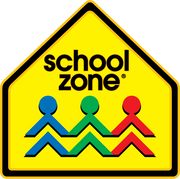Puzzles of all kinds—jigsaw, mazes, dot-to-dots, hidden pictures, crosswords, word searches, and memory games—like spinach and brussels sprouts, are super good for us but way more fun. Why not make them a regular part of kids' (and your own) leisure time/learning time activities?
Benefits of puzzle play are near-endless
What kids gain from solving puzzles is huge. A few years ago, in "The Benefits of Puzzles in Early Childhood Development," by Michelle Mano, posted to the Teach.com blog, while discussing jigsaw puzzles, suggested that they build physical skills "from holding puzzle pieces and turning them until they fit," cognitive skills "as they solve the problems of a puzzle," and emotional skills because "they learn patience and are rewarded when they complete the puzzles."
Mano breaks those benefits down even further, suggesting that physical skills include hand-eye coordination, gross motor skills, and fine motor skills; cognitive skills include memory, shape recognition, problem-solving, and "understanding the surrounding world;" and emotional skills include setting goals and developing patience.
At every age and life stage, puzzles help
Many sources tout similar benefits for adults, along with some additional ones: improved memory, better problem-solving skills, improved visual-spatial reasoning, improved vocabulary and spelling skills), delayed onset of dementia, improved mood, lowered stress levels, and increased attention to detail and productivity.
A post to Goodnet titled, "7 Surprising Ways Puzzles Are Good for Your Brain," says that "Puzzles invigorate our brains, but they are also very relaxing. While we are concentrating on how to solve the puzzle, our minds are only on one task and that encourages our brains to go into a meditative state." It adds that "This leads to a better mindset and better stress coping skills."
Different puzzles sharpen different skills
Solving mazes, dot-to-dots, hidden pictures, word searches, and crossword puzzles sharpen many of the same skills as jigsaw puzzles, while also developing others. For example, hidden picture puzzles develop visual perception and discernment, as well as attention to detail. They are all about seeing a form within a form (or the absence of a form).

The value of dot-to-dots is that in addition to learning and reinforcing numbers or letters, kids create a picture, fine-tune eye-hand coordination, and experience the accomplishment of completing a task. In mazes, kids solve a mystery while having the perceptual fun of following a path. Whether onscreen or on paper, they are practicing eye-hand control, visualizing a path, anticipating outcomes, solving a problem, and completing a task.
Word search activities increase word recognition, expand and reinforce vocabulary and spelling, and develop pattern recognition. Here are two workbooks that deliver hours of word search fun: Word Search Challenges combines word searches with fun facts. Find 18 bug names in the word puzzle, then read the information box about bug body parts and label them on a drawing. Next up? Learn about firefly luminescence and get some good, gross-out trivia about the Goliath beetle that can grow to four inches long.

Word Search People & Places introduces third- and fourth-graders to intriguing places, remarkable people, and fascinating animals.
Crossword puzzles also reinforce and expand vocabulary, stretch thinking, and can be a relaxing, stress-reducing activity for both kids and adults. Little learners 6 to 8 will find skill-building fun in First Crosswords Grades 1-2 Workbook.

And this 4-workbookPuzzle Activity Workbook Collection for ages 7-up includes Codes & Puzzles, Travel the Great States, Word Searches, and Crosswords Puzzle Fun that all expand knowledge in multiple subject areas.

Practicing memory skills benefits kids and grown-ups alike. Match Jr. and app), are also on the Anywhere Teacher online learning system. Plus, it includes Memory Match Beginning Sounds shown below, which boosts reading readiness skills. All versions test players' memory, as they turn over the squares to see the picture and touch another square to find a match. Play can be solo, with a friend, or against a built-in opponent.

At every age, puzzles deliver so many benefits that they should be a "must have, must do" for everyone.











